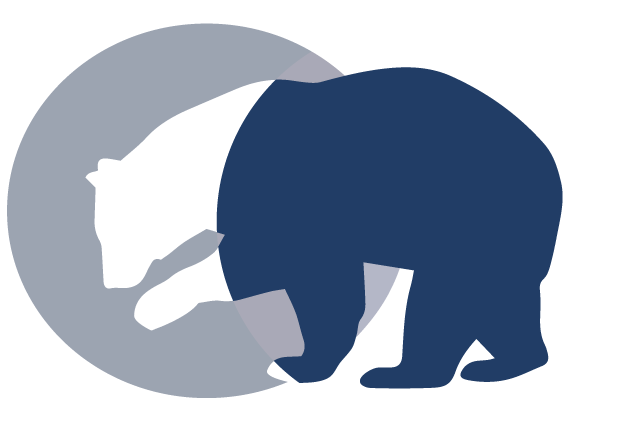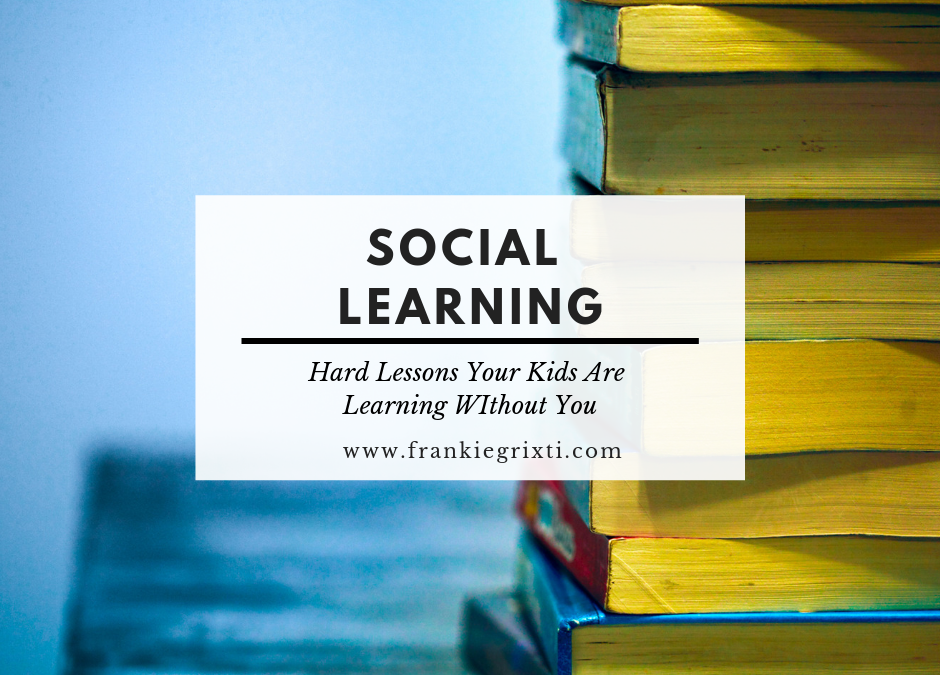Your children and adolescents aren’t learning everything from the adults in their lives. They’re actually learning some of the most developmentally important lessons from…wait for it…other kids that don’t have it all figured out either. It’s called “Social Learning” and if you’re a parent or someone that works with kids, take a seat and buckle up because you don’t want to miss out on this one!
Social Learning has been around as long as civilization, but only became an official theory in the last few decades. But what is Social Learning and how is it affecting your kids? – (It’s actually affecting you as an adult too, but that’ll have to wait for another blog post)
STORY TIME: Your 11 year old is starting to become more active and getting more sweaty as he gets older. He doesn’t know anything about deodorant and doesn’t care if his shirt is dirty. Why should he? He never had to wear deodorant before and all of his elementary school friends have ALWAYS had food and dirt stains on their shirts by the end of the day too. But after this most recent Summer vacation passes, he enters the 6th grade as a MIDDLE SCHOOLER. He has no idea that he’s about to learn a tough lesson the hard way. By the end of lunch period on one of the first days of school, he has a ketchup stain on his white shirt, dried food on the corner of his mouth, and has distinct body oder. He doesn’t even notice because it’s never been a problem before…until that popular and pretty 8th grade girl walks by with her equally popular boyfriend and they have some remarks to say that aren’t so friendly in front of everyone in the cafeteria. This was his first harsh lesson in Social Learning. He comes home and doesn’t tell you what happened (probably because you’ve had 100 conversations with him about showering, remembering to wear his deodorant, and taking care of his clothes over the years already). But you start to notice him caring more about his appearance and think he’s FINALLY getting it and he’s FINALLY listening to you. Little do you know, he learned what you tried to teach him 100 times in 1 quick moment from a bunch of teenagers who had no interest in helping him at all.
Get it? Good. Now how can you use this? Here are just a couple ways (but don’t be afraid to get creative if you have your own – you obviously know your child better than I do)
-You can be a forward thinker. Start exposing your kids as early as they can reasonably comprehend to the idea that peers can be mean and how to handle that when it happens, but also how to avoid it. Or start talking to them when they’re nearing puberty about the realities of the selection process in the dating world. Or start talking to them about kindness, because let’s face it…nobody wants to be friends with your mean kid if they don’t know how to share, or they’re a sore loser, or they can’t seem to stop bullying other kids.
-You can utilize role models. It can be celebrities or other kids that your child looks up to. Point out what they do that seems to be good qualities and help them develop their own versions of those qualities. Let’s face it – it’s just not cool to listen to your parents, so help them learn the same lesson you’re trying to teach them by helping them to see those qualities in the people and peers that they admire.
I’m not telling you to teach your kid to stop being themselves. I’m not telling you to teach your kids to pretend to be a certain way so that the “cool kids” will like them. I’m simply telling you that Social Learning will happen whether you guide it or not. It can be a cruel and even traumatizing way to learn if you don’t get involved. By assisting them, you can actually teach your child to look through the qualities of the people around them instead of just blindly floating through their environment. They can learn to develop a more full version of who they want to be and learning about how to be their best self by drawing positive inspiration from others.
You’ll probably never get credit for helping them have good Social Learning experiences, but you’ll be able to pat yourself on your back when they develop strong self-esteem and self-identity by looking through the catalogue of people around them and helping them learn how to be their best self.
Help our community learn more by posting any questions or comments below!


Hi, very nice website, cheers!
Thank you so much! Please let me know if you ever have any questions about the field